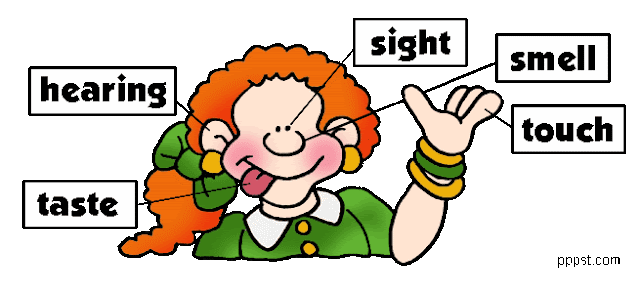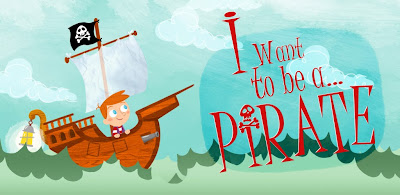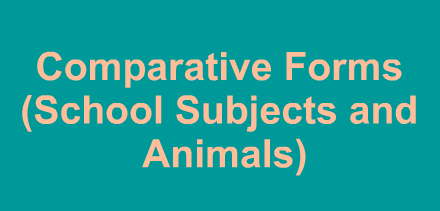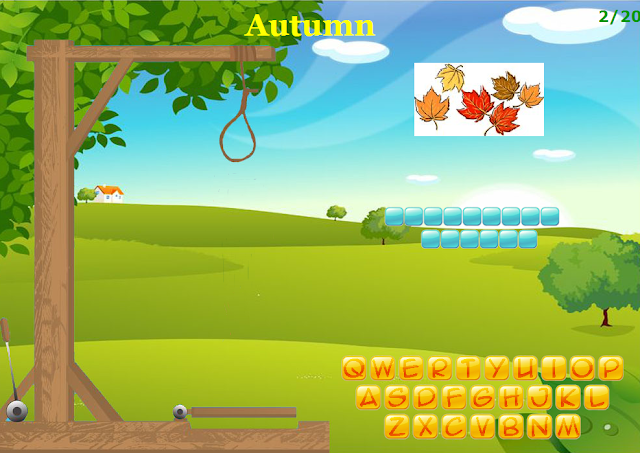Christmas Eve is the evening before Christmas Day, on December 24th. Many churches ring their church bells and hold prayers in the evening before holidays. Since Christian tradition holds that Jesus was born at night (based in Luke 2:6-8), Midnight Mass is celebrated on Christmas Eve, traditionally at midnight, in commemoration of his birth. The idea of Jesus being born at night is reflected in the fact that Christmas Eve is referred to as "Heilige Nacht" ("Holy Night") in German, "Nochebuena" ("the Good Night") in Spanish.
Here you will find fun activities and educational resources in English. Let's go!!!!
.

17 de diciembre de 2013
The princess and the dragon
Un monstruo horrible ha encerrado a la princesa en una torre.
¿Alguien podrá rescatarla?
3rd Primary School. British Council
16 de diciembre de 2013
A Christmas Game
¡Es justo antes de Navidad y Santa se está poniendo gordo!
¿Cómo podrá llevarle regalos a todos los niños?
¡Debe ponerse en forma! Santa va a ejercitarse corriendo.
¿Puedes ayudarle a correr por el país invernal de las maravillas?
¿Cuán lejos podrá correr sin toparse con las sorpresas de Navidad?
Primary School. British Council
13 de diciembre de 2013
Whose Christmas Present?
Santa and Amy have a bag full of presents, but who are they for?
Help Santa and Amy deliver the children's presents in time for Christmas.
Click on the picture and play. 2nd Cycle primary School
12 de diciembre de 2013
Christmas Stories and Poems
Long, cold, winter evenings are the perfect time to enjoy some stories with your children, and what could be better than Christmas stories! Here there is a collection of Christmas stories which you can enjoy with your kids.
11 de diciembre de 2013
A Christmas Memory Game
What does Santa look like?
Where will he leave your presents?
Can you match these Christmas words and pictures?
Click on the picture and play
10 de diciembre de 2013
Christmas Pudding Biscuits
These Christmas Pudding Biscuits are slightly chocolate, delicious and fun to make and decorate!
You will need: Makes 16
175g soft unsalted butter, 175g caster sugar
3 eggs, 400g plain flour, 75g cocoa powder
1 teaspoon baking powder, 1 teaspoon salt
200g white chocolate, Green writing icing, Glace cherries
Instructions:
Pre-heat the oven to 180C. Cream together the butter and sugar. Beat in the eggs. Sift the flour, cocoa powder, salt and baking powder in to the bowl and mix in well to form a dough. Wrap the dough in cling-film and pop into the fridge for at least 1 hour. Roll out the dough to about 1/2 cm thick. Use a large circle cutter to cut 12 circles. Place on a lined or greased baking tray and bake for 12 minutes. The biscuits should be browning slightly but still spongy to touch. They will firm up as they cool. When the biscuits are cool, melt the white chocolate. Coat half of each biscuit in white chocolate. Trim the glace cherries into small pieces and put them on to each biscuit to form the holly berries. Use writing icing to draw on the holly leaves. If you don't have the time or inclination to make your own biscuits any shop bought chocolate cookies can be substituted and decorated in the same way.
The Alcazar of Jerez de la Frontera
Students of 2nd cycle of Primary Education went to visit the Alcazar of Sherry last Wednesday. We saw the play "where sleeping dragons". A Grimm brother told us a legend happened inside the Alcazar.
This monument is a Moorish fortress. It was declared in 1931 Property of Cultural Interest (Bien de interés cultural). A first fortress was probably built in the 11th century in the south-eastern corner of the city. In the 12th century, a new structure was erected to be used as both residence and fortress by the Almohad rulers of southern Spain. Later, after the Reconquest of Andalusia, it was the seat of the first Christian mayors.
Features include:a grossly quadrangular line of walls (with a perimeter of 4,000 m). The Octagonal Tower (in Almohad style). The Tower of Ponce de León (the donjon dating to the 14th century). A mosque (the only remaining of the eighteen once present in the city. The minaret was turned into a bell tower. The praying hall, preceded by a small room of ritual ablutions, features a mihrab, indicating the direction of Mecca, and a rib vault with a circular window at the top. Palace of the Patio de Doña Blanca (dating to the 12th century Islamic structure, originally a leisure pavilion). Baths (they include an entrance area for undressing, leading to the cold and tepid rooms, the latter being the largest in the complex. The final room is the hot room, whose heating system is still partially visible). Gardens (there are olives, cypresses, mixed flowers and goldfish ponds).
Features include:a grossly quadrangular line of walls (with a perimeter of 4,000 m). The Octagonal Tower (in Almohad style). The Tower of Ponce de León (the donjon dating to the 14th century). A mosque (the only remaining of the eighteen once present in the city. The minaret was turned into a bell tower. The praying hall, preceded by a small room of ritual ablutions, features a mihrab, indicating the direction of Mecca, and a rib vault with a circular window at the top. Palace of the Patio de Doña Blanca (dating to the 12th century Islamic structure, originally a leisure pavilion). Baths (they include an entrance area for undressing, leading to the cold and tepid rooms, the latter being the largest in the complex. The final room is the hot room, whose heating system is still partially visible). Gardens (there are olives, cypresses, mixed flowers and goldfish ponds).
Del original alcázar islámico, se conservan las puertas, la mezquita, los baños árabes, la torre octogonal y el Pabellón del patio de Doña Blanca de Borbón. De etapas posteriores, destaca la Torre del Homenaje (siglo XIV) y el palacio barroco de Villavicencio (donde escuchamos el cuentacuentos) y el Molino de aceite (siglo XVIII). Circundado en parte por la amplia Alameda Vieja, destaca la imponente Torre Octogonal, de estilo almohade, así como la Torre del Homenaje de los Ponce de León. Más tarde, una fachada renacentista sustituyó al antiguo muro de paso a los baños árabes. Fue entregado en 1255 por Ibn Abit, último rey andalusí de Jerez, a Alfonso X El sabio tras la reconquista de la ciudad.
En 2009, unas excavaciones encontraron fondos de cabañas así como la huella de la presencia de antiguos silos que parece que correspondían a asentamientos de época prehistórica, concretamente del periodo Calcolitico de hace 5.000 años
A Christmas present wordsearch
Santa's been busy delivering presents and he's hidden ten toys in this puzzle.
Can you find them?
Click on the picture to start. 1st Cycle Primary School
5 de diciembre de 2013
Every child has the right for education
En este video podrás ver a todos los alumnos de nuestro colegio, desde 3 años de Ed. Infantil hasta 6º de Ed. Primaria, escuchar sus opiniones sobre el colegio, ver como juegan en el patio y observar como trabajan en la clase de inglés.
Preschool Education
Primary Education
3 de diciembre de 2013
Where are you from?
You have a right to a name and to be a member of a country.
En nuestro colegio estudian niños de muchas nacionalidades distintas, ¿los conoces?
Click to watch this video which shows all the countries in Europe.
29 de noviembre de 2013
I'm going to the cinema. Frozen
Hoy se estrena en los cines esta película. Walt Disney Animation Studios, presenta "Frozen", una historia llena de aventura y comedia. Anna, una optimista y valiente chica, se embarca en un viaje épico en el que hará equipo con Kristoff, un audaz hombre de montaña, y su fiel reno Sven, para encontrar a su hermana Elsa, cuyos poderes de hielo han atrapado al reino de Arendelle en un invierno eterno. Se encontrarán con situaciones extremas, duendes místicos y un muñeco de nieve muy divertido llamado Olaf. Juntos lucharán contra los elementos para salvar el reino.
I have five senses
I have 5 senses, I count those,
I use eyes, ears, skin, tongue and nose....
I have 5 senses, I count those,
I use eyes, ears, skin, tongue and nose....
My eyes can see,
My ears can hear,Click
My skin can touch... So, so much,
My tongue can taste,
My nose can smell,
My 5 senses work really well!
I use eyes, ears, skin, tongue and nose....
I have 5 senses, I count those,
I use eyes, ears, skin, tongue and nose....
My eyes can see,
My ears can hear,Click
My skin can touch... So, so much,
My tongue can taste,
My nose can smell,
My 5 senses work really well!
Click on the picture to watch the video
4th Primary School
28 de noviembre de 2013
Happy Thanksgiving Day!!
Thanksgiving Day o Día de Acción de Gracias es una celebración tradicional de Estados Unidos que se celebra el cuarto jueves del mes de noviembre.

La mayoría de personas en los Estados Unidos celebran esta fiesta con reuniones familiares en sus hogares donde preparan una cena. El plato tradicional es pavo asado relleno de pan, maíz y salvia que se sirve con salsa de arándanos. También suele servirse de postres pastel de calabaza, de nueces o manzana.

Es también tradicional en este día un Desfile por la avenida Broadway de Manhattan (Nueva York) a la que asisten millones de personas para ver los enormes globos gigantes y presenciar las actuaciones de artistas invitados.
La mayoría de personas en los Estados Unidos celebran esta fiesta con reuniones familiares en sus hogares donde preparan una cena. El plato tradicional es pavo asado relleno de pan, maíz y salvia que se sirve con salsa de arándanos. También suele servirse de postres pastel de calabaza, de nueces o manzana.
Es también tradicional en este día un Desfile por la avenida Broadway de Manhattan (Nueva York) a la que asisten millones de personas para ver los enormes globos gigantes y presenciar las actuaciones de artistas invitados.
27 de noviembre de 2013
Have you got a pencil?
El verbo "To have got" se utiliza para indicar posesión.
For example: I have got a felt-tip / Yo tengo un rotulador
3rd Primary School. English Activities.org
Click and do the activities about verb to have got
26 de noviembre de 2013
How to use an Interactive Whiteboard
La Pizarra Digital Interactiva (PDI), también llamada
pizarra electrónica, es una herramienta didáctica de uso reciente en la
enseñanza y con grandes potenciales pedagógicas.
Entre las ventajas del uso de
la Pizarra Digital Interactiva en la práctica educativa se pueden nombrar las
siguientes:
·
Incrementa los
niveles de motivación y participación de los alumnos.
·
Facilita la
interacción del estudiante con gráficos, animaciones, simulaciones, vídeos, imágenes,
etc.
·
Representa un desafío
para el profesor porque le exige articular una herramienta innovadora en su
quehacer pedagógico con los contenidos, los recursos disponibles, la motivación
en procura de experiencias significativas para el desempeño de los estudiantes.
·
El uso de variedad de
recursos en un mismo espacio favorece la comprensión, visualización de
conceptos y la construcción de conocimiento.
·
La facilidad de
acceso y utilización de múltiples medios tecnológicos en el salón de clases.
·
La pizarra ofrece la
posibilidad de grabación de una sesión de clase, la impresión, la toma de
apuntes, reduciendo el tiempo para preparación de las clases y la reutilización
de los resultados.
25 de noviembre de 2013
What do you want to be when you grow up? I want to be a ........
Want to + infinitive
This is a revision exercise created for 6th Primary School elementary students about jobs. It has several tasks, including a limerick at the end (which you may have to help them read, but limericks are great for rhythm). I hope you find it useful and fun.
6th Primary School. English Exercises. org
Click to revise the jobs and the grammar structure: want to...
22 de noviembre de 2013
Why is Homework Important?
Homework provides opportunities for reinforcement of work learned during school time and for children to develop their research skills. Children will need to seek information for themselves from reference materials such as encyclopedias, books, CD Roms and by doing so, are helped along the path to becoming independent learners. Having the responsibility of needing to meet deadlines promotes self-discipline, an attribute which will impact on school work and beyond.
La tarea proporciona la oportunidad de reforzar el trabajo aprendido durante el horario escolar y desarrolla en los niños sus habilidades de investigación. Los niños tendrán que buscar información por sí mismos a partir de materiales de referencia como enciclopedias, libros, CD-ROM y, al hacerlo, se les ayuda a lo largo del camino para convertirse en aprendices independientes. Tener la responsabilidad de tener que cumplir con los plazos promueve la auto-disciplina, un atributo que tendrá impacto en el trabajo escolar y más allá.
21 de noviembre de 2013
The Teddy Numbers Game
The Teddy Numbers Game can help you to learn numbers to 5. Learn the digits and words for the numbers and game can help you learn to count too.
Click on the picture and play
3 years Preprimary School. Top Marks
20 de noviembre de 2013
Universal Children's Day
«Todos hemos sido niños alguna vez. Y todos deseamos por igual el bienestar de nuestros niños, que siempre ha sido y seguirá siendo el anhelo más universal de la humanidad».

"We were all children once. And we all share the desire for the well-being of our children, which has always been and will continue to be the most universally cherished aspiration of humankind."
Click on the picture to learn more
Happy Universal Children's Day!!!!
The ONU, Canada and Ireland celebrate the Universal Children's Day annually on November 20th. In Spain we celebrate this day the Second Sunday of May

El Día Universal del Niño es un día dedicado a la fraternidad y a la comprensión entre los niños del mundo y destinado a actividades para la promoción del bienestar y de los derechos de los niños del mundo.

El Día Universal del Niño es un día dedicado a la fraternidad y a la comprensión entre los niños del mundo y destinado a actividades para la promoción del bienestar y de los derechos de los niños del mundo.
19 de noviembre de 2013
The parts of the head
En esta página encontrarás todas las partes de la cara, como se pronuncian, actividades para imprimir y actividades online.
Entra y aprende
2nd year of Primary School. The Yellow Pencil
18 de noviembre de 2013
Do you know Wikipedia?
La Wikipedia es una enciclopedia libre que cualquiera de nosotros podemos editar. En esta enciclopedia hay más de un millón de artículos publicados en español, pero también podemos encontrar información en otros muchos idiomas. Existe un índice de catergorías que nos facilitan nuestras búsquedas y consultas.
La fundación Wikimedia tiene otros proyectos también muy interesantes
15 de noviembre de 2013
Do you like wild animals?
Unit 2: Classification of vertebrate animals
In this unit we will learn a lot about these animals, their physical characteristics, the place or continent where they live, their favourite food......
Click and play
5th Primary School. Jclic
14 de noviembre de 2013
I like nuts, do you?
Click con the picture
Ya es otoño y la Ardilla Sally está recolectando sus nueces para el invierno. ¿Puedes ayudarla a recoger las nueces antes de que haga demasiado frío?
1st & 2nd Cycle Primary School
12 de noviembre de 2013
I talk about myself
They answer questions like,
What's your name?, How old are you?, Where are you from?, Where do you live?, What's your favourite colour/number?, What food/hobby.....do you like? How do you go to school? or
When's your birthday?
What's your name?, How old are you?, Where are you from?, Where do you live?, What's your favourite colour/number?, What food/hobby.....do you like? How do you go to school? or
When's your birthday?
Do you want to meet these students?
11 de noviembre de 2013
Comparative Adjectives
En este libro encontrarás vocabulario sobre asignaturas escolares y animales.
Aprenderás muchos adjetivos y a compararlos.
Al final de las actividades podrás compraobar tu número de aciertos
Click on the picture
3rd Cycle of Primary school
6 de noviembre de 2013
Adverbs of frequency
Estos adverbios nos indican la periodicidad con la que se realiza una acción.
Para saberlo, preguntamos "How often.........?"
How often do you go to the theatre?
I sometimes go to the theatre
Los que nosotros usaremos son éstos:
always...........siempre............100%
usually...........normalmente......75%
often..............a menudo...........50%
sometimes.........a veces............25%
never................nunca.................0%
Es importante el lugar donde va, observa estos ejemplos:
Josh always arrives at 7:30 pm
We usually ride a bike.
He sometimes writes to me.
The children never go to school by plane.
Click on the picture to do activities
6th Primary School
5 de noviembre de 2013
Happy Bonfire Night!!!
Remember, remember the fifth of November,
Gunpowder, treason and plot,
We see no reason,
Why gunpowder treason,
Should ever be forgot!
Gunpowder, treason and plot,
We see no reason,
Why gunpowder treason,
Should ever be forgot!
In this web there are colouring pages, crafts, printables, puzzles, worksheets, etc... about Bonfire Night.
Click here and play
4 de noviembre de 2013
Autumn Hangman
Con este juego podrás practicar el vocabulario relativo al otoño y deletrear el abecedario en inglés de una forma entretenida.
2nd & 3rd Cycle Primary school. Englishexercises.org
31 de octubre de 2013
Halloween in our school
Celebramos Halloween: hacemos fichas, cantamos canciones, vemos dibujitos de mieeeeedoooooo.....
Click on the picture to watch the power point
En primaria también nos divertimos en Halloween
29 de octubre de 2013
Halloween
¿De dónde viene
esta tradición?
Descubre más sobre la divertida fiesta de Halloween
y sus diferentes costumbres.
Su origen,
tradiciones y curiosidades.
Historia de la
Noche de las Brujas.
Origen de la Calabaza, Jack-o-lantern,
Truco o Trato, Trick or Treat,
Morder la Manzana, Gatos Negros,
Luna Llena, brujas......

28 de octubre de 2013
25 de octubre de 2013
USA Smarts
Un entretenido juego de preguntas sobre Estados Unidos.
Otra manera de aprender. ¿Quieres probar?
Otra manera de aprender. ¿Quieres probar?
24 de octubre de 2013
23 de octubre de 2013
Interactive Reading
¿Quieres que te cuente un cuento?
Pues no esperes más, ¡empieza el viaje por donde más te guste!




























